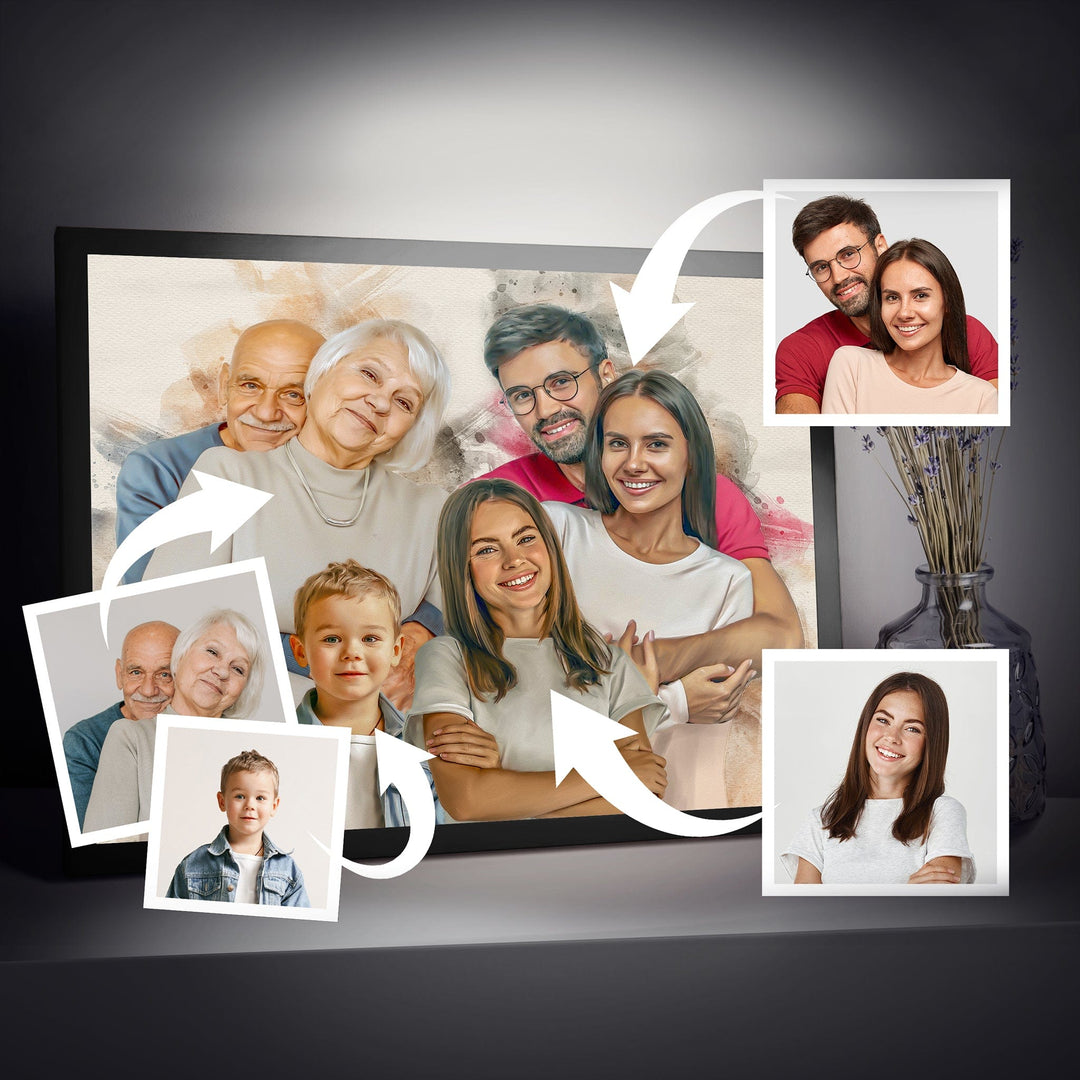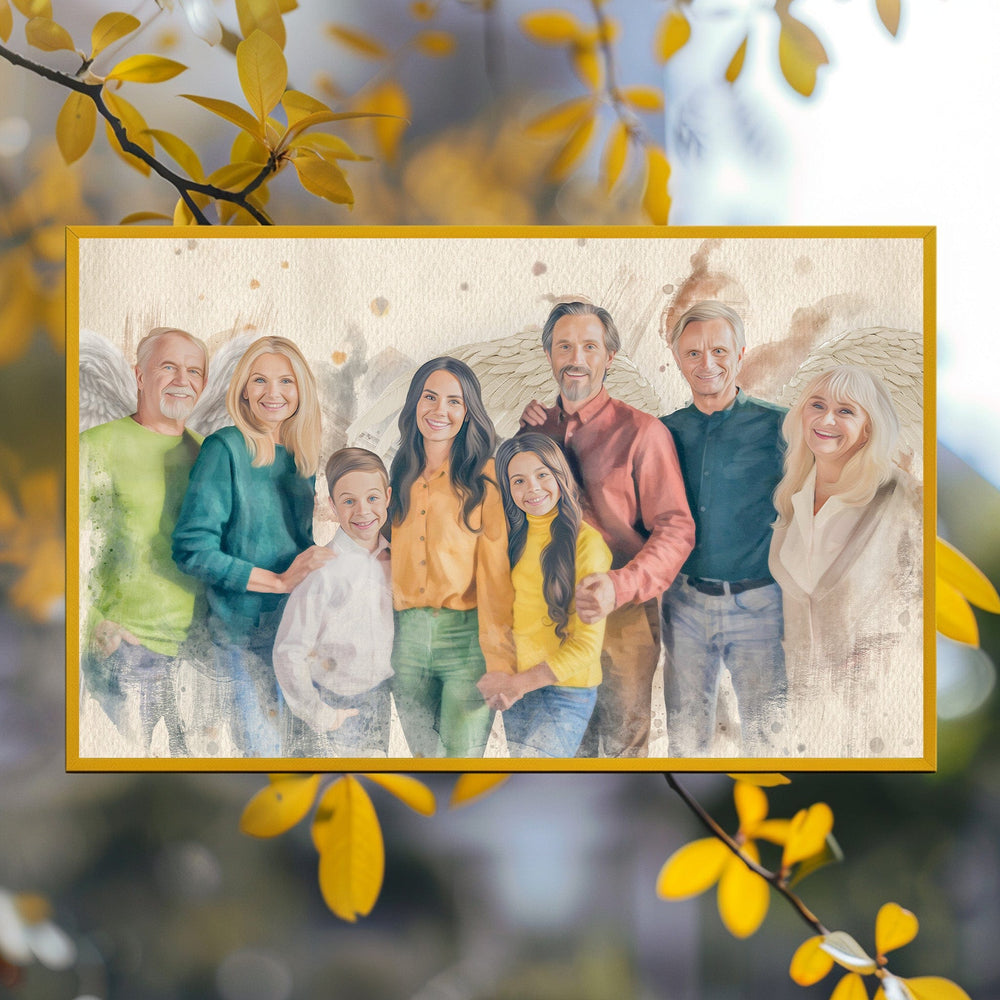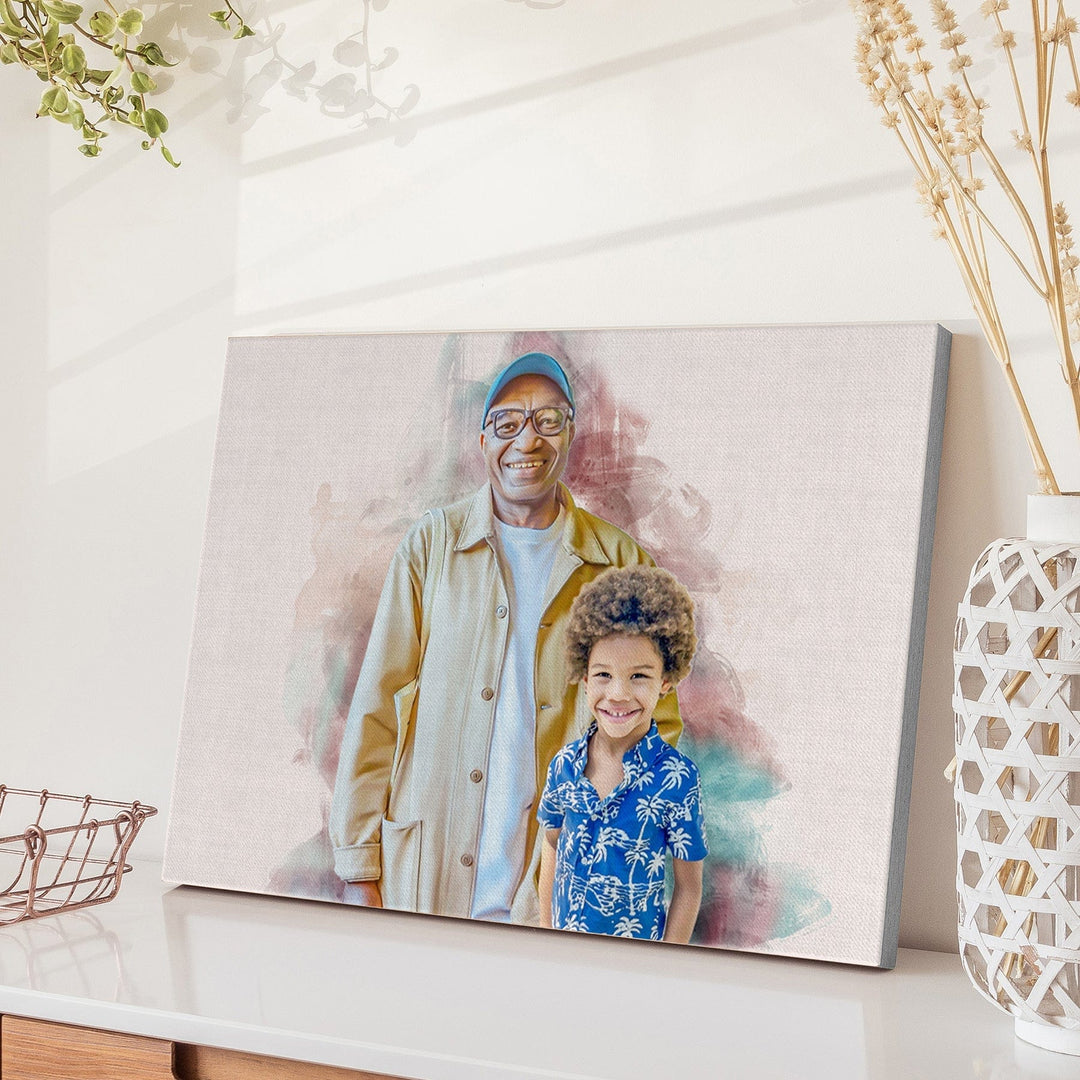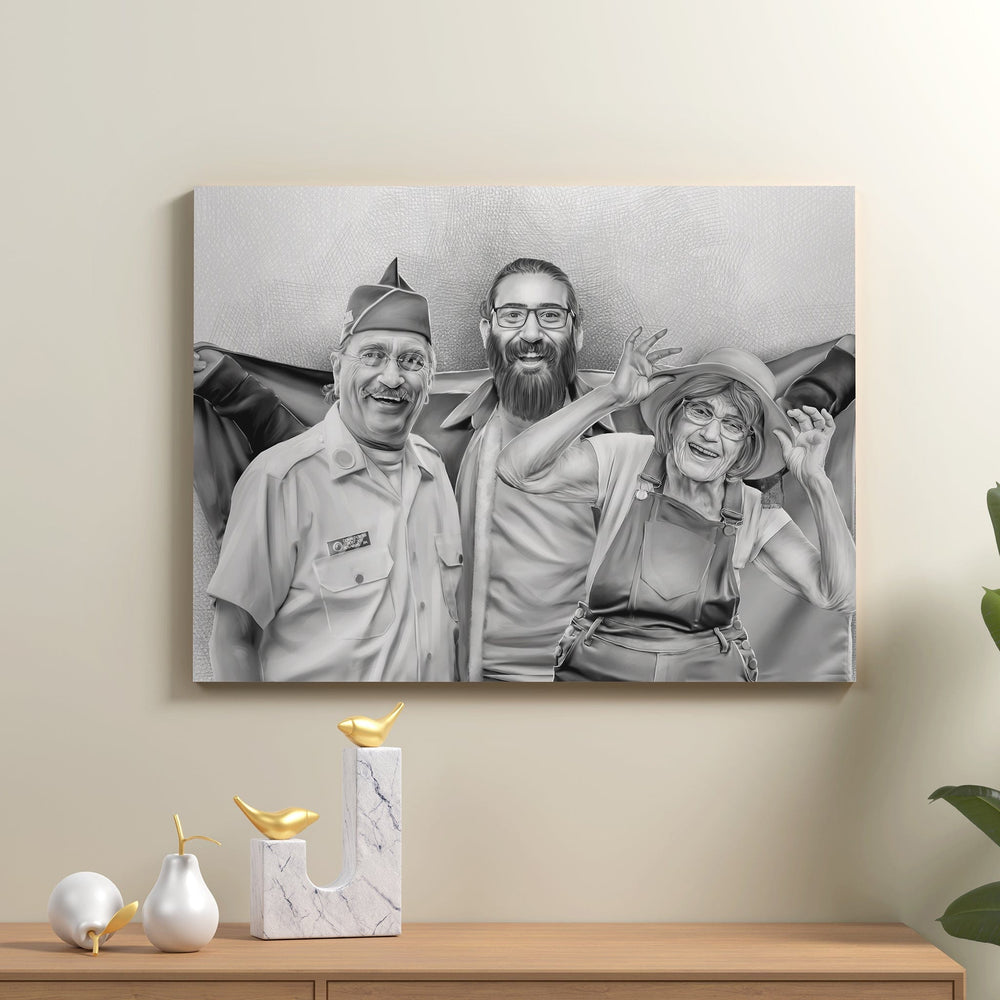Artist Block: What Is It And How Do You Overcome It?
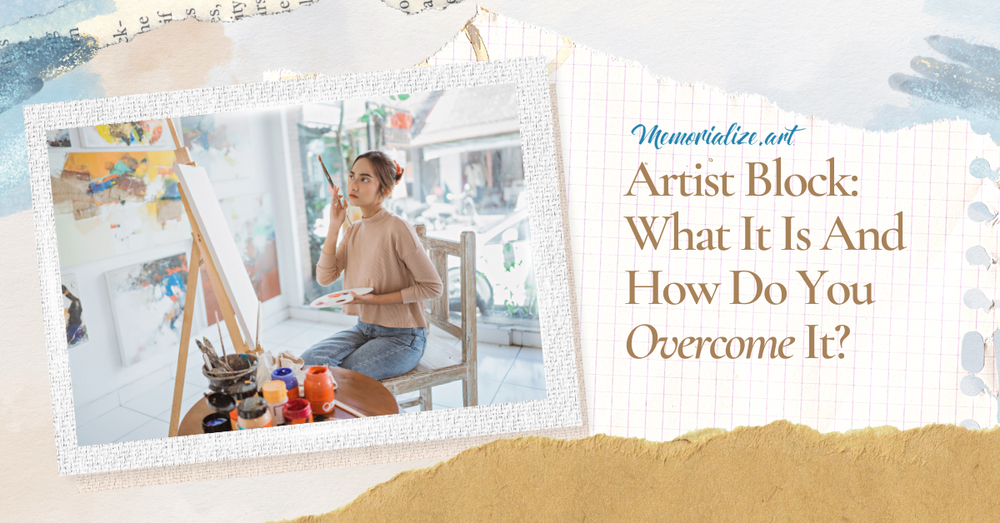

Artist's block can strike any artist, no matter the level of experience or the medium they work in. It's a time when creativity seems to slow down, ideas are hard to come by, and the inspiration you normally rely on feels like it's disappeared. It can be a frustrating time for artists as it can stop productivity in its tracks and may even cause self-doubt. But what is artist's block exactly? And how can you overcome it?
Think of artist's block like writer's block. It's a period when an artist finds it tough to create new work because they lack motivation or inspiration. It doesn't mean the artist lacks talent or skill. Rather, it's a common speed bump in the creative journey. The reasons for the artist's block vary. It can be caused by personal issues, stress, high expectations, or a fear of failing.
Beating artist's block takes patience, kindness towards oneself, and a readiness to try new ways of being creative. In this article, we'll explore different strategies to help you get through this tough phase, light your artistic spark again, and return to creating art that you love.
What Is Artist Block?
Artist's block is a term you might have heard before. It's something that can happen to any artist, no matter how experienced they are or what kind of art they create.
But what does it mean exactly? Well, imagine having a foggy brain that just won't let you think clearly. You're trying to come up with new ideas, but nothing seems to stick. The inspiration that usually comes so easily to you feels like it's gone on vacation. It is what we call artist's block.
It's more than just a small hiccup where you can't decide what your next project should be. It’s like a thick fog that covers your mind, making it hard for you to see or create anything new.
During this time, you may feel stuck, as if your creativity has run dry. You might even start to question whether you're an artist.
Artist Block comes in different ways
Just like there are many different types of art, there are also many different types of artist's block. It doesn't look the same for everyone. It depends on who you are as an artist and what kind of art you create. Let's take a look at some of the most common types:
Writer's Block
Most people have heard of writer's block. It happens when someone who writes - be it stories, poems, or articles - finds it difficult to produce new work. It's like their creativity has slowed down to a crawl.
It can happen for a lot of reasons. Maybe they're feeling stressed or doubting their abilities. Or maybe they've written something in the past that was so successful they're scared they won't be able to match it.
Painter's Block
Painters can experience artist's block, too. For them, it might look like not being able to start a new painting. Or maybe they feel unhappy with the colors they're using or the strokes they're making.
Sometimes, they might feel like they're just doing the same thing over and over again. This block can often be caused by a fear of messing up or not being able to live up to their own standards.
Drawing Block
Drawing block is when artists who focus on drawing or sketching find it hard to create. They might feel like nothing they draw is good enough. They might feel like their hands aren't doing what their brain is telling them to do. Wanting to create a perfect piece of art can lead to this type of block. It can stop the artist from even starting because they're scared they won't be able to get it right.
How Do You Know If You Have Artist Block?
Knowing that you have artist's block is the first step towards overcoming it. How can you tell if you have it? You might have artist's block if you've noticed that you're not creating as much as you used to.
Maybe you're finding it hard to feel satisfied with the work you are producing. Other signs could be feeling out of ideas, lacking the motivation to start new projects, or feeling like all your ideas are old and boring.
You might also find yourself avoiding your workspace or putting off your work more than usual. Remember, having artist's block is something that happens to most artists at some point.
It's a normal part of the creative process. Knowing that you're going through it can help you figure out how to get your creativity back on track.
How To Get Out Of Artist Block
Facing an artist's block can feel like trying to navigate through a dense fog. It's challenging but remember: it's not impossible. Creativity isn't a switch you can flip on whenever you want. Instead, think of it as a river—it ebbs and flows.
Here are some strategies to help you find your way when the creative river seems to have run dry:
- Take a Breather: There's no harm in stepping back from your work for a while. This isn't about quitting; it's about giving your mind a much-needed break. A little distance might be all you need to see things from a fresh perspective.
- Find Inspiration: Don't hesitate to seek inspiration from the world around you. Dive into the works of other artists, visit art galleries, or take a walk in nature. New environments can spark new ideas and help reignite your creative flame.
- Switch Things Up: If you're used to painting in the morning, try painting at night. Maybe rearrange your workspace or try a new art medium. These small changes can sometimes lead to big creative breakthroughs.
- Keep Creating: It might seem counterintuitive, but continue creating—even if you don't feel inspired. Sometimes, the act of creating can kickstart your creativity. You might be surprised to find that once you start, it becomes easier to keep going.
- Embrace Mindfulness: Mindfulness exercises, like meditation and yoga, can help clear the clutter in your mind and reduce stress. This calm state of mind might just be the perfect environment for new ideas to grow.
Artist Block Exercises
There are specific exercises designed to battle artist's block. These exercises aim to jump-start your creativity and get those artistic gears turning again:
- Drawing from Memory: Close your eyes and visualize a place or object. Now, try to draw it from memory. This exercise taps into your subconscious mind, often bringing out unexpected ideas.
- Speed Sketching: Set a timer for 5 minutes and sketch whatever comes to mind. This helps you overcome the fear of creating a 'perfect' piece and encourages spontaneous creativity.
- Word Association Sketching: Write a word—any word. Now, sketch everything that comes to mind when you think of that word. This breaks away from linear thinking and allows you to explore new concepts.
- Color Mixing: Experiment with mixing different colors. This is a stress-free way to reconnect with your materials, and who knows? You might discover a new favorite color combination!
Painting Exercise
Here are some specific painting exercises that can reignite your artistic spark:
Pet Portrait

Painting a pet portrait can be a fun and rewarding exercise. Choose a photo of your pet—or someone else's—and try to capture their unique personality in paint. It's a great opportunity to experiment with color, texture, and emotion.
Restoring Old Photos

Pick an old, faded photo and attempt to restore its former glory using paint. This can be a challenging exercise that requires attention to detail, color matching, and blending. It's a wonderful way to practice and refine your painting skills by restoring old photos
Watercolor House Painting

Choose a house—it could be your own, your dream house, or even a dollhouse—and paint it using watercolors. The Watercolor House Painting exercise allows you to play around with perspective, shadow, and light, enhancing your understanding of these elements.
Dog Watercolor Painting

Similar to the pet portrait, choose a dog—yours or a friend's—and paint it using watercolors. The Dog Watercolor Painting exercise can be a playful way to experiment with capturing movement and emotions.
Remember, the aim of these exercises isn't to create a perfect piece of art but to overcome your creative block. It's all about the journey, not the destination. Don't be too harsh on yourself; instead, enjoy the process of creating and see where it leads you.
Preserve Your Cherished Memories Forever with Memorialize Art
Life is full of fleeting moments and cherished memories. But what if you could capture those moments and keep them alive forever? With Memorialize Art, you can do just that.
Whether it's the endearing gaze of your beloved pet, the nostalgic charm of an old family photo, or the comforting familiarity of your childhood home, we can help you preserve these precious moments in vibrant, lasting pieces of art. Our team of skilled artists is ready to transform your memories into masterpieces that will stand the test of time.
Don't let your precious memories fade into the annals of time. Instead, immortalize them with our Memorialize Art service. It's more than just a painting—it's a tangible piece of your past that you can hold onto forever.
Are you ready to start this beautiful journey of remembrance and celebration? Don't wait! Click here to begin your journey of immortalizing your cherished memories through art. Let's create something beautiful together.
FAQ
What causes artist's block?
Artist block can result from various factors. High-stress levels, self-doubt, fear of failure, and pressure to create perfect work can all contribute to this condition. Additionally, experiencing a major life change or emotional upheaval can also lead to a creative block.
How do you treat an artist's block?
Treating artist block involves various strategies. It could be as simple as taking a break from your work to rest and recharge. Seeking inspiration from the world around you, changing your routine, practicing mindfulness, and continuing to create despite the block can also be effective. In some cases, you might find it helpful to speak to a mentor or therapist.
How do I know if I have an artist block?
Signs of artist block can include struggling to generate new ideas, feeling unsatisfied with your work, lacking motivation to start new projects, or feeling as though your ideas are repetitive or unoriginal.
You might also find yourself avoiding your workspace or procrastinating more than usual. Remember, experiencing artist block is common among creatives and is usually temporary.


